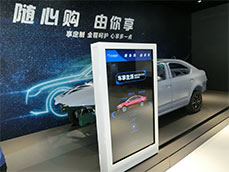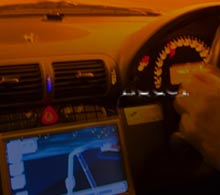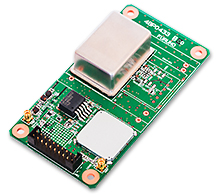Articles for ITS market The 'Complete' online sales of new cars start in Japan. Will this new way of buying cars take root?
Hyundai Motor (Hyundai) launches 'Complete' online sales in May 2022.
'I have no qualms about buying a car with my smartphone'.
This is a concept that is gradually spreading among multiple generations, especially among digital natives, who have grown up surrounded by a variety of electronic devices in their daily lives from an early age.
However, a review of the finer points shows that the use of smartphones and personal computers to purchase a car has so far not reached the point where the entire process, right through to the final purchase, can be carried out consistently.
For example, Volvo Cars Japan has been selling electric only EVs online including the Volvo C40 Recharge, introduced in Japan in 2021, but sales contracts and payments with customers are handled by existing authorized dealers.
In addition, certified pre-owned vehicles, which car manufacturers have recently increased sales of, and subscription models such as Toyota's KINTO, also require customers to send documents back and forth with them by post for credit screening and other purposes.
Against this backdrop, South Korea's Hyundai Motor (Hyundai) announced that it will start selling new cars fully online in Japan from May 2022.
According to an announcement by Hyundai Mobility Japan, the first two models to be launched are the IONIQ 5 electric vehicle (EV) and the NEXO fuel cell vehicle.
The specifications of the IONIQ 5 include a maximum output of 225 kW and maximum torque of 605 Nm for the four-wheel drive model. A battery capacity of 72.6 kWh and a fairly long range of 618 km on a full charge for the rear-wheel drive model.
To virtually non-store retailing.
In terms of sales, Hyundai has not set up an authorized dealer in Japan, and is effectively a non-store retailer.
Prospective buyers can check vehicle information on the Hyundai website and, if necessary, consult with a dedicated customer service center via telephone or social networking.
Credit checks and settlements are also completed online after the sales contract has been signed. The purchased car is then delivered to the purchaser's designated location, such as home.
It is exactly like buying home appliances or groceries on Amazon or Rakuten Ichiba, where you buy a new car.
Regular inspections and repairs are carried out by Hyundai Mobility Japan's affiliated maintenance shops across the country.
There are several reasons for Hyundai's decision to go complete online sales this time.
For example, as a re-entry to Japan after 12 years, the company wanted to have a significant impact for users and the media.
Hyundai conducted business for passenger cars in the Japanese market from 2001 to 2009, selling a cumulative total of approximately 15,000 units, but withdrew from the market. Jae-Hoon Chang, CEO of Hyundai Motor Company, Hyundai's head office, recalls the difficult situation at the time, saying that the company was unable to listen carefully to the voices of each and every one of its valued customers.
On this basis, it can be said that Hyundai has decided to build a virtual sales network in Japan, taking advantage of the fact that as a result of its withdrawal from Japan in 2009, it no longer has a nationwide sales network.
Such next-generation business models will continue integrating with various areas in the automotive industry's major transformation, such as new services including connected, automated driving and sharing, and electrification.
Online sales are thriving in China. While in the USA, in-store sales are still the norm.
Let's shift our perspective to foreign markets.
'In the US, where IT giants like Apple, Google, Meta (formerly Facebook), Amazon and Microsoft are concentrated, online sales of cars must be on the rise.'
Many people might think so.
The reality of the US market, however, is very different.
Both new and used cars are predominantly bought and sold at old-style car dealerships.
In this regard, an executive from a major US car sales supervisory company explained that this is because state laws protect car dealers.
In the USA, dealerships have set up their own websites that are similar to online sales, but the reality is that they are limited to checking the specifications of vehicles in the dealership's inventory. In the USA, the general business model is that dealers place regular orders with manufacturers and keep the cars they purchase in stock.
As a state government, it is thus clear that it is committed to protecting local dealers. And US dealers are skeptical about online direct sales from the manufacturer to the user.
Meanwhile, online sales of new cars worldwide have spread fastest in China.
The reason behind this is that many manufacturers found it difficult to build a sales network throughout China during the rapid economic growth from the 2000s.
The regions with the highest new car sales in China are coastal areas such as Beijing, Shanghai and Guangzhou, or areas relatively close to the coast, and new car dealerships have been concentrated in these areas.
For medium-sized inland cities and even smaller cities, from the 2000s to the beginning of the 2010s, some manufacturers have been actively promoting their new vehicles by transporting them in a fleet of several large trucks and holding temporary exhibitions on site. Thanks to such efforts, the number of dealers contracted by manufacturers in medium-sized and smaller cities gradually increased.
On the other hand, some cities and regions have emerged where there are no dealers.
In response, car manufacturers began to sell new cars over the phone, with regions and cities where there were no dealerships available. They strengthened their very online sales, with dedicated call centers and local maintenance shops working together.
Furthermore, in the 2010s, China's IT Big Three (Baidu, Alibaba and Tencent) expanded their business rapidly as smartphones became very popular in China.
In this context, Alibaba began to actively develop new car sales on its online sales portal site, Tmall.
As various online sales of household goods and other products are expanded in China in the future, a more advanced business model for new car sales may also emerge.
Will the day come when fully online sales of new cars become mainstream in Japan?
We will be keeping a close eye on developments at Japanese car manufacturers.
Writer introduction

Mr. Kenji Momota Automotive journalist
His major is the world automotive industry and he is also familiar with the energy industry, IT and the aging society problem as the related fields. He acts around the world based in Japan and USA and writes for the general magazines, the technology journals and the automotive related media etc.
He is also commentator of motor race and world's motor show on TV program based on his career of the driver of Indy Racing League and NASCAR. In recent years, he has been covering about a paradigm shift from developed countries to developing countries, the motorized vehicle like EV and the telematics.
FURUNO ITS Journal
Click here for the latest articles after 2022 (in Japanese)2022
- The "realistic" self-driving roadmap shown by the Japanese government and a hands-on report on the latest Subaru EyeSight X
- Will FCVs (Fuel Cell Vehicles) Become Popular? ~New Movement in Toyota and Honda~
- The 'Complete' online sales of new cars start in Japan. Will this new way of buying cars take root?
- Many Firsts! On-Site Report from Tokyo Auto Salon 2022 - The author, who knows what goes on behind the scenes, looks back on 40 years of history. -
2021
- "Moving toward zero traffic fatalities for four-wheeled and two-wheeled vehicles globally in 2050" ~Experience on Honda's latest safety technologies~
- Tsuneishi Shipbuilding's building and DX, an exclusive visit to the main factory
- Japan's Smart City: New Moves toward Practical Use
- When will self-driving buses (service cars) be put to "full-scale" practical use?
- Utilization vehicle data during disasters
- Toyota-led Connected Technology to Transform Commercial Vehicle Business -From light trucks to large trucks and buses-
- Toyota enters the connected car "Personalization" business
- Japanese automakers' carbon-neutral strategies swept up in ESG investment
- Drive experience of the latest autonomous vehicle models and advanced driving support systems
- Will carbon neutrality accelerate the trend to strengthen LCA (Life Cycle Assessment)?
- Semiconductor shortage exposes realities of the automotive industry
- Online Autonomous Driving Contest Enhancing development of Human Resources
2020
- What happens to CASE when gas cars are banned in Japan?
- When will Flying Cars be launched?
- Expectation vs. reality:Autonomous Driving in Japan
- V2X, Becoming increasingly important in autonomous driving
- Technology of Subaru “EyeSight X”
- Lifestyle-oriented French cars gain popularity in Japan
- Human-oriented smart cities are wanted
- MaaS and CASE, how would automotive industry change after COVID-19?
- The beginning of virtualization era, triggered by COVID-19
- Trend of EV shift and consumer demands
- TOYOTA Press conference about ADAS - Releasing algorithm for "sudden acceleration suppression during attempted sudden acceleration" free of charge -
- The Japanese automotive industry in 2020 - 3 turning points -
- "Using a smartphone while driving" and "Level 3 automated driving"
2019
- Motor show business model is at a turning point - Tokyo Motor Show Report -
- Commercialization and monetization of MaaS - ITS World Congress Singapore Report -
- Android Automotive pays attention to V2X - Report from the Frankfurt Motor Show 2019 in Germany -
- Automobile Distribution Revolution and DCM (Data Communication Module)
- Connected business potential and newly proposed "eMaaS" by Honda
- 5G services for practical use are multiplying
- Connectivity technologies attracting attention due to frequent traffic accidents
- Shanghai Motor Show report -SUV, EV, Automated car & 5G-
- Drone Business roadmap and updates to Michibiki (Quasi-Zenith Satellite System)
- MaaS (Mobility as a Service) "town development." Full-scale promotion for a national project
- CES organizer states "Data Period in 2020s." Transformation of the Automotive Industry in CES, US "-CES2019 Report-"
- "Return to Origin" directed towards the age of change, automatic operation and connectivity
2018
- New proposal for Private Car Automated Driving Level and other Hot 5G Technology Topics
- Standardized EV charging infrastructure concerns in Europe, US, Japan and China - Kobe EVS 31 field report -
- Touring a pure car carrier and a test drive of the latest hybrid car
- Planning stage products are exhibited at the newly established visualized mobility service "TOYOTA MOBILITY SHOWROOM".
- Potential “Community Car-share” program promoted by local residents
- CES Asia Report 2108
- Companies attempt new Vehicle-to-Infrastructure communications, including traffic volume measurements and vehicle positioning. -ITS Asia Pacific Forum in Fukuoka-
- Geneva show in Switzerland. Flying cars and MaaS (Mobility as a Service) were hot topics.
- EV (Electric Vehicle) proposals by country
- MaaS competition through service mobilization, M & A and technical field collaboration is accelerating. - The CES 2018 Report -
2017
- Big data’s initiative and fight for the automotive industry. Cooperation among companies becomes increasingly important.
- Connected car and road-to-vehicle communication automatic operation
- ETC (Electronic Toll Collection) and ETC2.0. Current situation and projected future
- Rapid development of sharing economy
- Germany is first to recognize level 3 automated driving
- ITS EU 2017 Field Reports -Automatic Operation and the eCall-
- From Infotainment to ITS, the competitive area is spreading in the car big data industry.
- GTC (GPU Technology Conference) Report and the de facto standardization of AI (artificial intelligence)
- Renesas' new challenge! "e-AI Solution" and "Renesas Autonomy"
- The Automobile industry is shifting from a manufacturing industry to a service industry.
- The movement toward accident countermeasures for aging drivers in Japan
- Fusion of ride sharing and fully automated driving is advancing in the USA.
2016
- Overview of the Quasi-Zenith Satellite System (QZSS) and advancements toward full-scale practical use including the Tokyo Olympic Games - G-space EXPO 2016 report-
- Japan’s automated driving project "SIP-adus" will be a large demonstration experiment.
- The International Home Care & Rehabilitation Exhibition. There were many car manufactures with exhibits booths at this show.
- Japanese car manufacturers starting to concentrate on strengthening the ADAS system
- A new movement of legislation for autonomous cars
- Cyber Security and “AGL”, the new OS for automotive are hot topics in the connected car industry
- “High precision 3D map” the key future of autonomous car and pedestrian dead reckoning
- Chinese “BAT” is accelerating their business in the EV (Electric Vehicle) market
- Tesla's original connection to Taiwan and the new transportation system technologies.
- "The main topic" of the Geneva Motor Show was how to strengthen "pedestrian protection"
- The probe data business is getting more competitive
- Reporting directly from the 2016 CES show "Data services will soon become the main revenue source of automotive industry"
2015
- Do the automated driving systems need the GNSS (Global Navigation Satellite System) ?
- ETC Version 2.0 is coming soon. A new service was announced at the Tokyo Motor Show and the possibility that is could be used as a device for older drivers.
- "Connected Horizon" and "eHorizon". Germany's leading parts supplier accelerates strengthening of "Big Data" for business



 Scene of a press conference on Hyundai's re-entry into the Japanese market. Source: Hyundai Mobility Japan.
Scene of a press conference on Hyundai's re-entry into the Japanese market. Source: Hyundai Mobility Japan. Chinese manufacturers are aggressive in online sales after electrification and connected technology. Photo by the author. (Image Photo.)
Chinese manufacturers are aggressive in online sales after electrification and connected technology. Photo by the author. (Image Photo.) View of Shanghai city. Photograph by the author.
View of Shanghai city. Photograph by the author. GPS/GNSS Receiver&Chips and Modules (positioning and timing)
GPS/GNSS Receiver&Chips and Modules (positioning and timing)